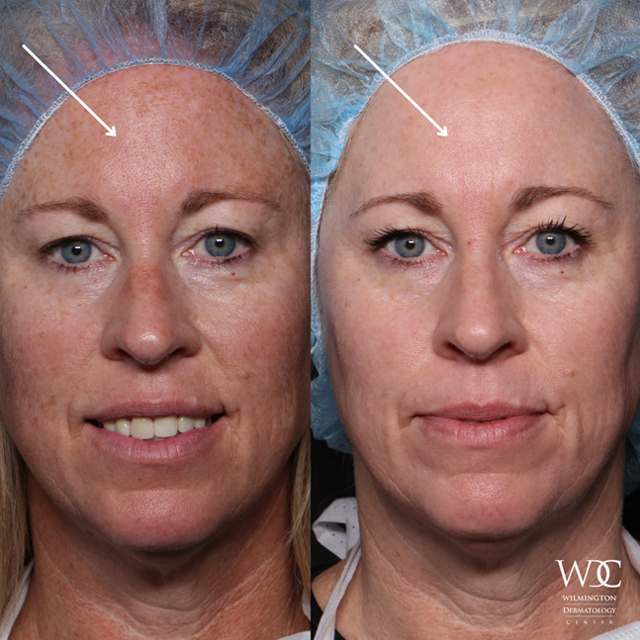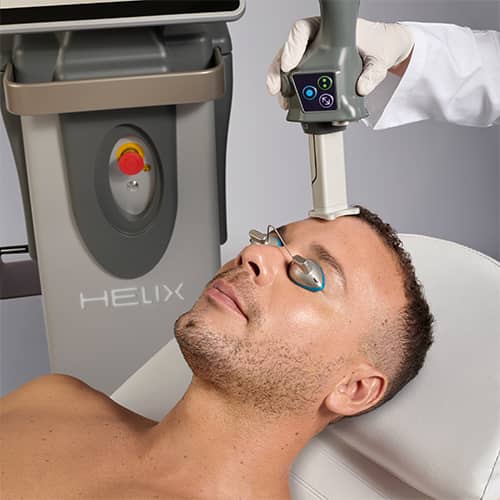Key benefits of why clients keep coming back to Delray Dermatology for ongoing skin care
Key benefits of why clients keep coming back to Delray Dermatology for ongoing skin care
Blog Article
Checking Out the most recent Fads in Dermatology: Technologies and Therapies
As the area of dermatology proceeds to develop, groundbreaking modern technologies and innovative therapy strategies are transforming individual care. From the increase of telemedicine to the boosting usage of man-made intelligence, these improvements offer enhanced analysis precision and personalized treatment alternatives.
Pioneering Technologies in Dermatology: A Closer Look

The Increase of Personalized Dermatology Treatments
With the arrival of advanced technologies in dermatology, a noteworthy shift is observed in the direction of more customized treatment methods. These methods typically come from the understanding that each client's skin is unique, requiring individualized care. Ultherapy. Customized therapies aim to deal with specific skin concerns based upon genetic information, way of living aspects, and individual responses to therapies
Customized dermatology treatments can vary from bespoke skincare items to personalized therapeutic strategies. These techniques have confirmed efficient in managing numerous skin problem, including acne, eczema, rosacea, and premature aging. They also decrease the threat of adverse responses, as treatments are aligned with the patient's details skin account. The rise of tailored dermatology therapies represents an extensive modification in individual treatment, highlighting the individual's one-of-a-kind needs and actions.
Dermatology and the Influence of Expert System
While individualized therapies revolutionize client treatment in dermatology, an additional substantial change is produced by the assimilation of expert system (AI) AI algorithms, trained on huge data sets of skin disease, demonstrate amazing analysis precision, measuring up to that of knowledgeable dermatologists. This modern technology not only speeds up diagnosis but likewise equalizes accessibility to expert guidance. AI's potential extends to predicting therapy end results and customizing therapy strategies, enhancing the effectiveness of the present technique. The application of AI faces challenges, such as information privacy issues and the need for more recognition of these innovations in diverse populaces. In spite of these obstacles, the impact of AI on dermatology is obvious, directing towards a future where technology and human know-how operate in tandem for optimized patient treatment.
The Growing Popularity of Non-Invasive Skin-related Procedures
In the world of dermatology, a notable shift is being observed in the direction of non-invasive treatments. These advanced methods, such as laser chemical, treatment, and microdermabrasion peels, are acquiring appeal as a result of their minimal healing time and lowered risk of issues. The fad reflects a broader societal preference for quick, reliable therapies with little disturbance to life. Non-invasive procedures typically use an even more affordable alternative to surgical interventions, making them accessible to a broader population. This evolution in dermatology not only shows technical improvements in the field but additionally suggests altering person assumptions and needs. As this market remains to grow, it is expected to form the future of skin-related treatments considerably.
Arising Organic Therapies in Dermatology
Are organic treatments the next frontier in dermatology? Existing patterns suggest a favorable response. Biological treatments utilize the body's immune system to combat illness, such as psoriasis and atopic dermatitis. These therapies work by targeting particular parts of the body immune system, instead than taking a broad-spectrum technique. They have the potential to give better lasting administration of these conditions, improving patients' lifestyle. One such therapy is Dupilumab, a monoclonal antibody that blocks 2 proteins causing inflammation. Various other biological therapies, like TNF preventions and IL-12/ 23 inhibitors, have actually additionally shown assurance. In spite of their advantages, these therapies are not without negative effects, and they need careful tracking. Their emergence stands for a substantial shift in skin-related treatment approaches.
Conclusion
The landscape of dermatology is swiftly progressing, with improvements in telemedicine, expert system, and non-invasive procedures leading the method. Personalized treatments and emerging organic therapies are redefining client treatment. These developments highlight the industry's dedication to technology and improved client results. As dermatology remains to try here grow and adapt, it continues to be a dynamic area that is poised to deliver significantly effective and targeted therapies.
As the area of dermatology continues to develop, groundbreaking innovations and innovative treatment approaches are changing individual care.With the development of sophisticated innovations in dermatology, a remarkable change is observed in the direction of more personalized therapy strategies. Customized treatments intend to resolve certain skin worries based on genetic details, way of life elements, and individual responses to therapies.
The increase of personalized dermatology therapies indicates an extensive linked here change in patient treatment, stressing the individual's unique needs and feedbacks.

Report this page